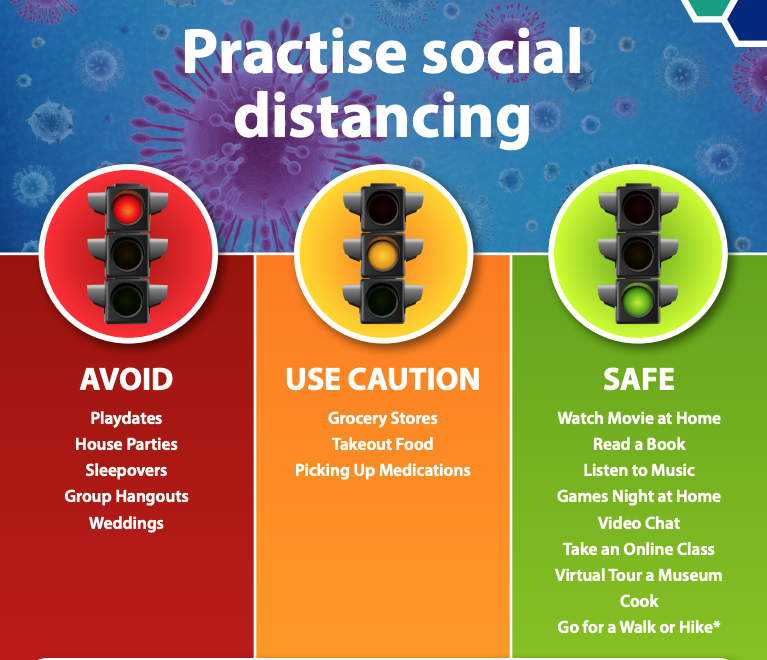this is the mobile version, switch to computer if needed
15 March 2020
main information
(all times are Pacific unless specified otherwise)
mobile version of tracker
CLEANING
Soap
It’s the best way to wash up (and much easier to find than hand sanitizer).
Disposable gloves
For handling things that might be contaminated. Do not wash or reuse.
Disinfectant wipes
Look for products with active ingredients such as quaternary ammonium, sodium hypochlorite, or hydrogen peroxide.
Towels, clean linens
Or anything else you might need more of as cleaning habits change.
FOOD/NECESSITIES
Supplies of shelf-stable food
Beans, rice, flour, and canned items: enough for a couple of weeks, if access to grocery stores is limited.
Coffee or tea
Or other everyday “necessities”.
A first aid kit
Hospitals may be overwhelmed, so you’ll want to be able to treat minor problems at home.
90 days of medication
The CDC recommends stocking up on prescriptions, so contact your doctor.
WORK AND ENTERTAINMENT
Yarn, art supplies, or other hobby items
It’s a good time to dive into an activity you can do at home. Morale matters!
Things for working from home
From a desk chair to a mouse, it’s better to have the tools for your job if it’s possible to work remotely.
Electronics and, potentially, spare parts
If your phone or computer breaks, it’s an inconvenience in the best of times. Right now, it might be more than that, if stores aren’t open to get a replacement.
Games for family time
If you’ve got kids at home, you’ll need distractions!
IF YOU GET SICK
Medication for reducing a fever, like acetaminophen (Tylenol).
A thermometer for monitoring a fever.
Cough and cold medication
including cough drops and lozenges, cough syryps like Dayquil/Nyquil, and decongestants like Sudafed (the active ingredient is pseudoephedrine, so get the much lower cost generic version).
A humidifier can also help with a cough that makes it tough to sleep.
Rehydration solutions
Pedialyte or Gatorade works, but you can make it at home with a liter of drinking water, a scoop of sugar, and a pinch of salt. Plain water or other liquids also work for mild dehydration in adults.
Basics
what is COVID-19?
Coronaviruses (CoV) are a large family of viruses that cause illness ranging from the common cold to more severe diseases such as Middle East Respiratory Syndrome (MERS-CoV) and Severe Acute Respiratory Syndrome (SARS-CoV). [WHO: Coronavirus]
Coronavirus disease (COVID-19) is a new strain that was discovered in 2019 and has not been previously identified in humans. [WHO: Coronavirus]
Coronaviruses are zoonotic, meaning they are transmitted between animals and people. Detailed investigations found that SARS-CoV was transmitted from civet cats to humans and MERS-CoV from dromedary camels to humans. Several known coronaviruses are circulating in animals that have not yet infected humans. [WHO: Coronavirus]
Common signs of infection include respiratory symptoms, fever, cough, shortness of breath and breathing difficulties. In more severe cases, infection can cause pneumonia, severe acute respiratory syndrome, kidney failure and even death. [WHO: Coronavirus]
Standard recommendations to prevent infection spread include regular hand washing, covering mouth and nose when coughing and sneezing, thoroughly cooking meat and eggs. Avoid close contact with anyone showing symptoms of respiratory illness such as coughing and sneezing. [WHO: Coronavirus]
How do I care for myself and family?
Everyone should take care of their health and maintain hand and respiratory hygiene to protect themselves and others, including their own families.
Regularly and thoroughly wash your hands with soap and water, and use alcohol-based hand sanitiser. Maintain at least 1.5 metres or 6 feet distance between yourself and anyone who is coughing or sneezing.
Persons with persistent cough or sneezing should stay home or keep a social distance, but not mix in crowd. Make sure you and people around you, follow good respiratory hygiene, meaning cover your mouth and nose with a handkerchief or tissue or into your sleeve or tissue when you cough or sneeze. Then dispose of the used tissue immediately.
Stay home if you feel unwell with symptoms like fever, cough, and difficulty in breathing. Go to the emergency room if your symptoms turn serious. Do not engage in self-medication.
COVID-19 prepartions
Masks and other protective gear [What preppers are stocking up on for COVID-19]
Water and storage [What preppers are stocking up on for COVID-19]
Medical equipment [What preppers are stocking up on for COVID-19]

from Dr. Sarah Boon:
These are the basic, solid graphics that people need to understand what to do and not to do in these times. Basic #scicomm, people!

—Dr. Sarah Boon, Co-founder & BoD @ScienceBorealis, Writer, editor, photographer, Former scientist, as posted on Twitter 12:32 pm, 24 March 2020
Coordinate help for charities.
If you have contact info and items needed by other charities, please let us know through the website contact form.
Contact
Feeding the working poor, elderly, and homeless
The Someone Cares Soup Kitchen, Costa Mesa, CA, has an extreme shortage of paper plates, paper napkins, paper towels, plastic forks and spoons, and toilet paper needed to feed hundreds of working poor, elderly, and homeless every day.
If you are in the Orange County area you can contribute. See their website. Please provide contact info for other charities around the world.
720 West 19th Street, Costa Mesa, CA 92627 USA
[949] 548.8861 Office
shannon@someonecareskitchen.org Executive Director
News and historical timeline
(all times are Pacific unless specified otherwise)
regular timeline
15 March 2020

from Mitt Romney:
Every American adult should immediately receive $1,000 to help ensure families and workers can meet their short-term obligations and increase spending in the economy
Congress took similar action during the 2001 and 2008 recessions. While expansions of paid leave, unemployment insurance, and SNAP benefits [the program formally known as food stamps] are crucial, the check will help fill the gaps for Americans that may not quickly navigate different government options.
—Senator Mitt Romney, R-Utah, press staement, 15 March 2020

from Mitt Romney:
1) Practice strict quarantine. Stay in your home, drive alone in your car, or walk by yourselves outdoors where others aren’t around. Avoid restaurants, movie theaters, shopping centers, and airplanes. Work from home until we know more.
Working from home may be impossible for you—as it is for me in the Senate. But it’s sure worth a try.
2) Prepare your own meals at home. If you order delivered meals, have them left on the doorstep by specifying “no contact” delivery and make sure to heat them to kill any germs.
3) If you share your home with younger people, divide your quarantine space by creating a barrier with anything you can find, and keep younger folks who aren’t following a quarantine several feet away from the dividing line.
—Senator Mitt Romney, R-Utah, as posted on Twitter 5:57 pm, 15 March 2020
from National Restaurant Association:
What do I need to know about the CDC guidance on social distancing?
On March 15, the CDC released a guidance for large events and mass gatherings include conferences, festivals, parades, concerts, sporting events, weddings, and other types of assemblies that for the next 8 weeks, organizers (whether groups or individuals) cancel or postpone in-person events that consist of 50 people or more throughout the United States. This guidance does not apply to the day to day operation of organizations such as schools, institutes of higher learning, or businesses. However, some states and municipalities are imposing new limitations on restaurant operations.
—National Restaurant Association, 15 March 2020